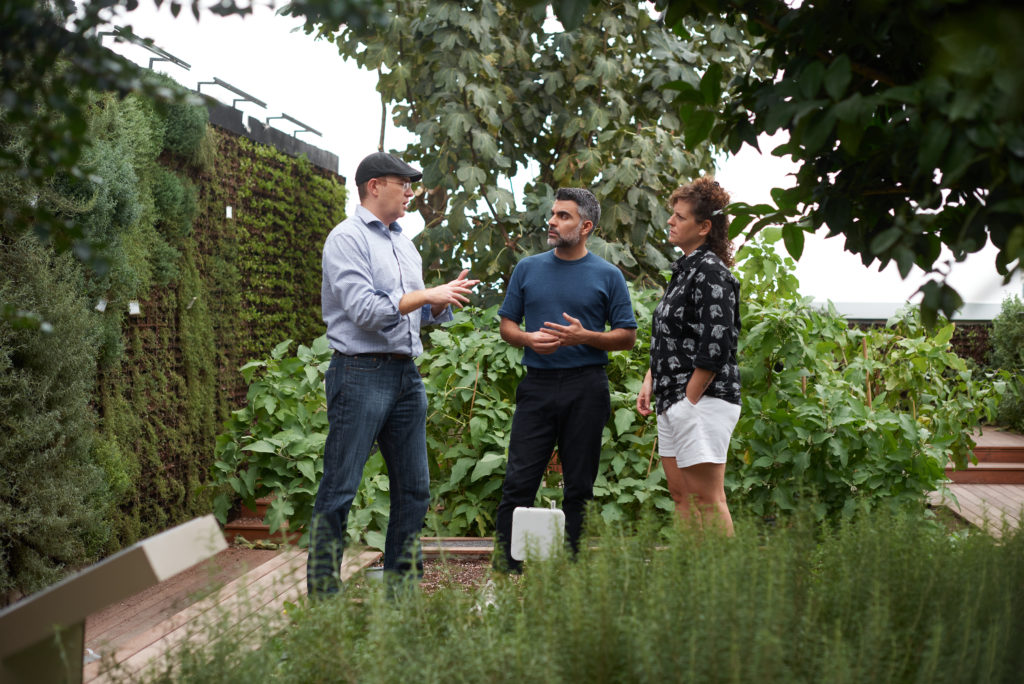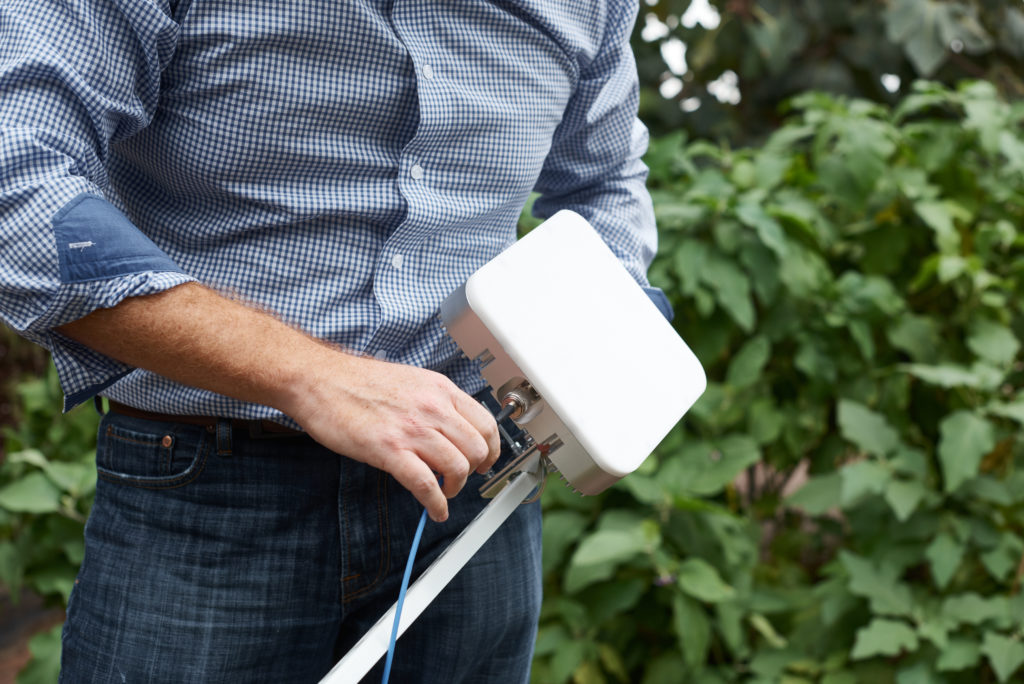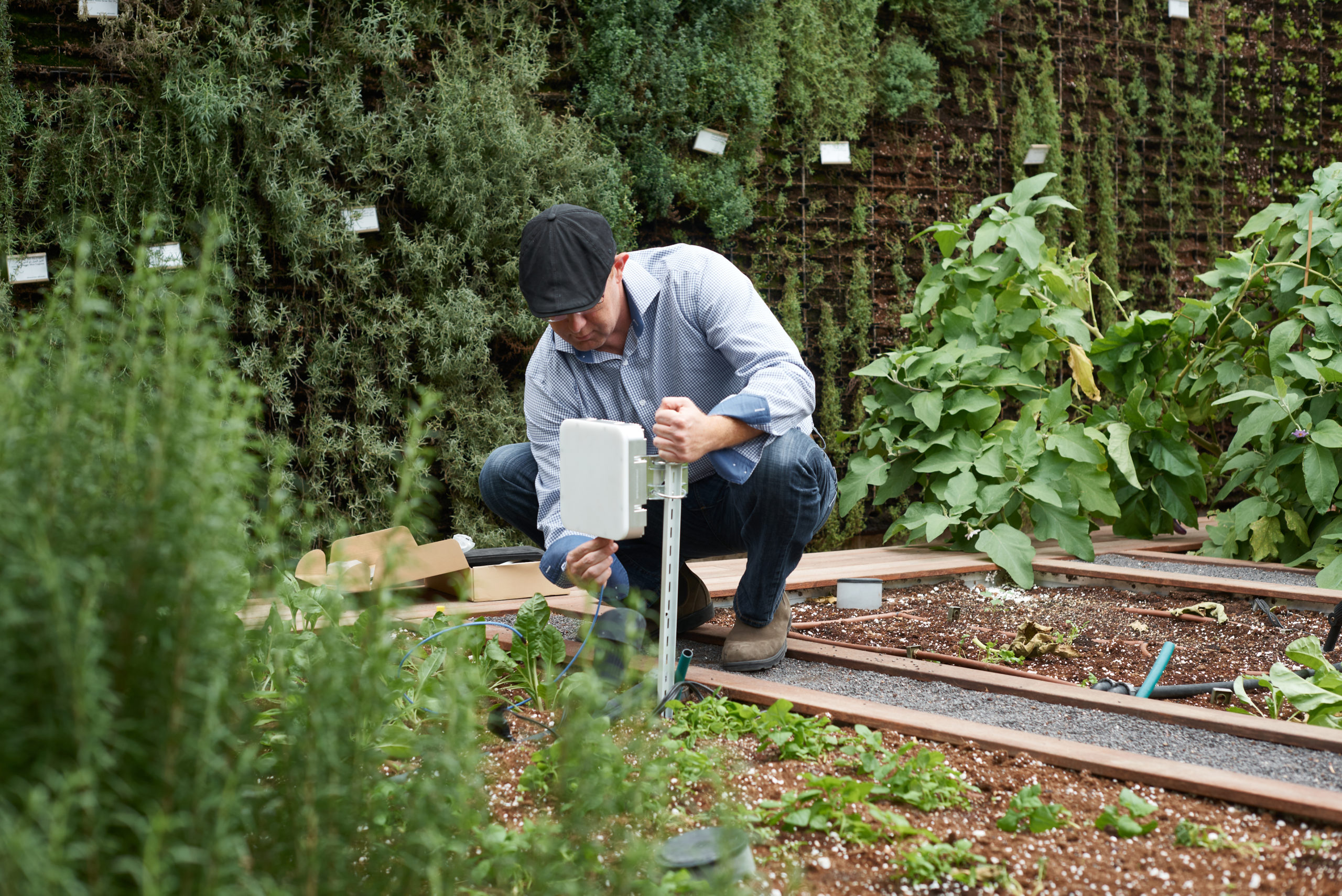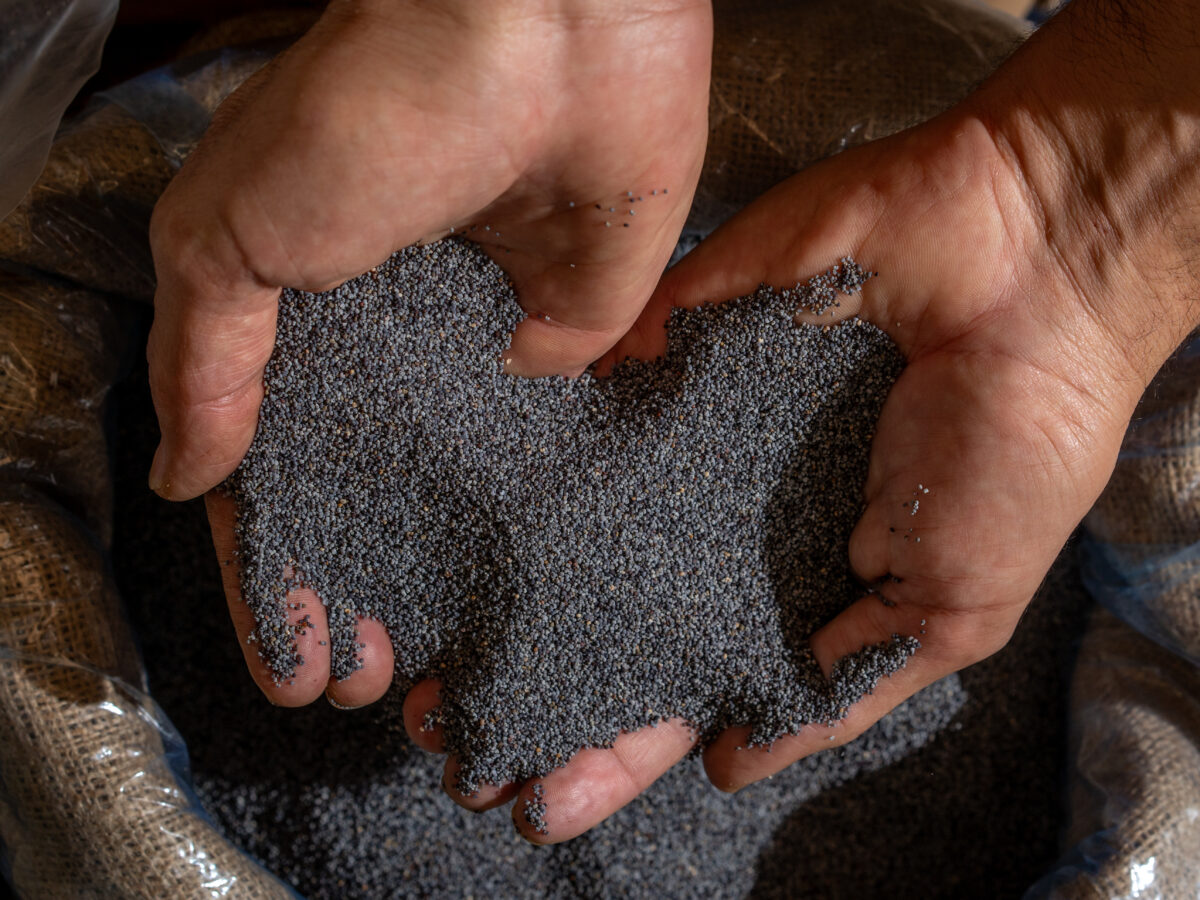Most fruits and vegetables that we find in big supermarkets and even corner stores are grown with the help of pesticides, many of them containing chemicals that can be both harmful to consumers and the planet. Crops Guard, an agritech startup based in Modi’in, is looking for an alternative solution, replacing pesticides with radio technology that kills small insects in greenhouses.
Joshua Karsh, Crops Guards’ VP of marketing and business development, who joined the company in 2020, chatted with Asif about the technology, regulation, and what a no-pesticide approach to growing plants might mean for vegans and those who keep kosher.
In layman’s terms, tell us about this technology.
Crops Guard is a hardware and software solution that utilizes radio frequency to safely and effectively eliminate insects under 3mm in size. It is the only technology of its kind in the world today.
How did the idea for Crops Guard come about?
Crops Guard’s Chief Science Officer, Prof. Hanokh Czosnek is a renowned expert in the interactions between viruses, their host plants, and their insect vectors. He dreamt of a technological solution that would one day replace the dangerous chemicals that are common in crop protection. In collaboration with our Chief Technology Officer, Nadav Bitton, who is an expert in advanced communication technology, they were able to bring Prof. Czosnek’s dream to reality.

The technology you developed focuses on insects that are very small, but doesn’t impact pollinators. How do you find this middle ground and why is it so important?
From the beginning we wanted to ensure that our technology did not impact pollinators so we carried our extensive testing. There is already a massive problem around the world with pollinators and we did not want to add to this problem. As we continued to test, we saw that our technology was most effective against smaller insects and their early stages of development such as eggs and nymphs. Our ability to eliminate these early stages of development is essential because by eliminating the second generation of the insects, you drastically reduce the threat they pose to our crops.
On your website, you say this technology has been used in Israel and Australia. Are you still at a testing phase or are you selling directly to farmers? Where do you hope the company will be in the next few years?
We have tested extensively in academic, research and commercial facilities in Israel and Australia and are extremely confident in the efficacy of our technology. Crops Guard has proven to be as effective if not better than commercial pesticides. Crops Guard is currently certified for use in the United States and we hope to finish our Canadian certification in the coming weeks and our European certification early next year.
Down the road, do you see applications in home gardens? What about farming fields outside of a greenhouse setting?
As we introduce Crops Guard around the world, we often hear: “I would love one of those for my garden at home.” We do envision a home version of Crops Guard technology in the future. We are currently introducing our technology to key strategic markets around the world – predominately in controlled environment agriculture. However, we absolutely see open field applications and especially in helping farmers deal with some of the most difficult problems in the world, such as Citrus Greening disease.
On your website, you say: “Crops Guard is adapted from Israeli military technology and has been further developed with over a decade of additional research and development.” Can you tell us about the military technology this is derived from?
Prof. Czosnek, our chief science officer, collaborated with the Israeli Air Force several decades ago. There he saw how radio frequency technology was utilized in novel ways and it inspired him to [see how] radio frequency technology could be integrated into agriculture and specifically into crop protection.
In our previous conversation, you told me that your company is facing challenges around regulations in Israel with the Ministry of Communications (misrad hatikshoret) because of the use of radio technology. Can you elaborate on this? It seems like one of the unique struggles startup companies face is this tension between innovation and regulation.
When you make a solution that is radically innovative, it can be challenging to deal with the regulatory authorities. We use communication technology in a way that has never been done before. We hope to be able to finish navigating the regulatory process in Israel soon – there are many farmers in Israel that are extremely interested in using Crops Guard in protecting their precious crops.
How is your approach different from pest management used on organic farms?
It would be more appropriate to call our approach “chemical free” or “pesticide free.” There are other aspects of organic farming such as types of fertilizers or herbicides that are unrelated to our work. Our goal is to replace the dangerous chemical pesticides. We see our technology as an extremely effective tool for organic farmers as they work to grow the most natural crops possible.
A follow up to that: In some countries, like the US, the regulations around the word “organic” are set by governmental agencies. How, if at all, will Crops Guard approach that?
Organic farmers around the world have different Integrated Pest Management (IPM) methods at their disposal, but never had the opportunity to use technology like Crops Guard. Because Crops Guard is completely pesticide free, we should fall safely into what is permissible by organic regulations around the world.

How much energy does it take to power this technology in a greenhouse?
Crops Guard devices don’t require a significant amount of electricity – its power consumption is similar to a small appliance you have in your home. The devices can easily connect to the existing power supply in technologically advanced greenhouses.
Let’s talk about veganism. Do you anticipate opposition or criticism from vegans?
There is a debate in the vegan community regarding the use of pesticides in any form. While vegans will decide for themselves what is the best course of action to follow, it is safe to say that everyone is against the very dangerous chemical pesticides that are having such a disastrous effect on our bodies and our environment. To finally have a technological alternative to these dangerous chemicals is an amazing benefit to anyone who wishes to use it.
Organic produce is often not kosher because cooks may find unkosher bugs between leaves of greens or in the crevices of cauliflower. Do you think your product can help to “open” the organic market to those who keep kosher?
We have had some initial conversations with kashrut authorities regarding our technology. Because growers that cater to some religious communities cannot use beneficial insects, their crop protection can be especially challenging. Crops Guard technology will be extremely helpful to these growers and give them a powerful resource that is acceptable to the kashrut organizations.
This interview has been edited for clarity. Devra Ferst contributed research to this article.



